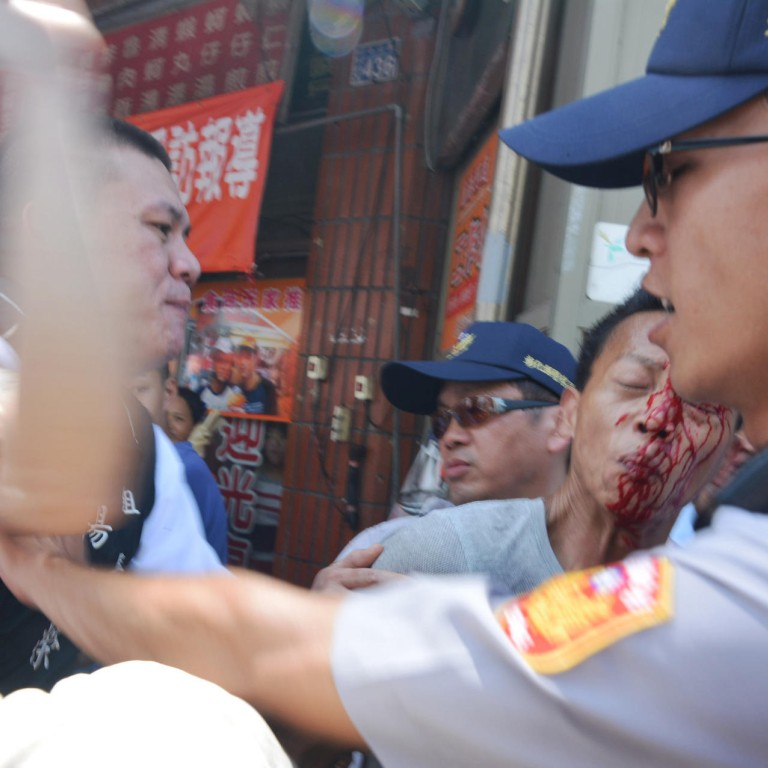
Taiwan protests force Beijing official to cancel events on last day of visit
Beijing's top cross-strait negotiator cancels three events, but has still managed to meet ordinary Taiwanese in what is a new approach to ties
Zhang Zhijun, Beijing's top negotiator for cross-strait affairs, was forced to cancel several appearances on the final day of his landmark visit to Taiwan yesterday.
Zhang had billed his four-day trip as "a journey of listening and understanding" - one that would allow him to meet locals and hear a very "different voice". Analysts said this could prompt Beijing to adopt a more flexible position in cross-strait affairs.
Zhang, director of the State Council's Taiwan Affairs Office, was forced to cancel one scheduled event in the south and two in central Taiwan.
His host, the Mainland Affairs Council, said the changes followed clashes between police and protesters throughout his visit.
Demonstrations began to turn rough on Thursday. Protesters have included members of the small pro-independence Taiwan Solidarity Union, the student-led Taiwan March organisation and Falun Gong.
Several dozen protesters tried to block his motorcade at a beachside resort in Kaohsiung on Friday night. Zhang was in the southern city to meet his Taiwanese counterpart, council chairman Wang Yu-chi. Protesters threw white paint, but only managed to hit his bodyguards.
Such protests are "normal in Taiwan, given that it is a pluralistic society with different voices and opinions", Zhang said after visiting a school for the blind in Taichung, central Taiwan, where he briefly met Mayor Jason Hu Chih-chiang. "But I also understand that the mainstream opinion [in Taiwan] opts for peaceful development of cross-strait relations," he said, adding this was the "consensus" of both sides.

Zhang said he was pleased the two sides had finally set up a direct and official communication channel that would help avoid misunderstanding.
He was referring to the "bilateral communication mechanism" he and Wang had agreed to set up during Wang's landmark visit to the mainland in February.
Zhang said proposals for city exchanges and cooperation had been arranged in his meetings with local government heads, including with Hu, New Taipei Mayor Eric Chu Li-luan and Kaohsiung Mayor Chen Chu, a member of the pro-independence Democratic Progressive Party.
He said he had met a number of residents, which would allow him to deepen his understanding of the perspective of locals.
"Let's treasure what we have now and join hands in creating a better future for the two sides of the Taiwan Strait," he said in Taichung before heading back to Beijing in the evening.
Analysts said Zhang's emphasis on meeting locals showed Beijing had dropped its traditional approach of talking solely with senior Kuomintang officials.
"This is something worth noting," said Liao Da-chi, a professor of political science at National Sun Yat-sen University in Kaohsiung.
George Tsai Wei, a political-science professor at Chinese Culture University in Taipei, said the direct communication channel "represents the start of political contact between the two sides" that would pave the way for future dialogue.

